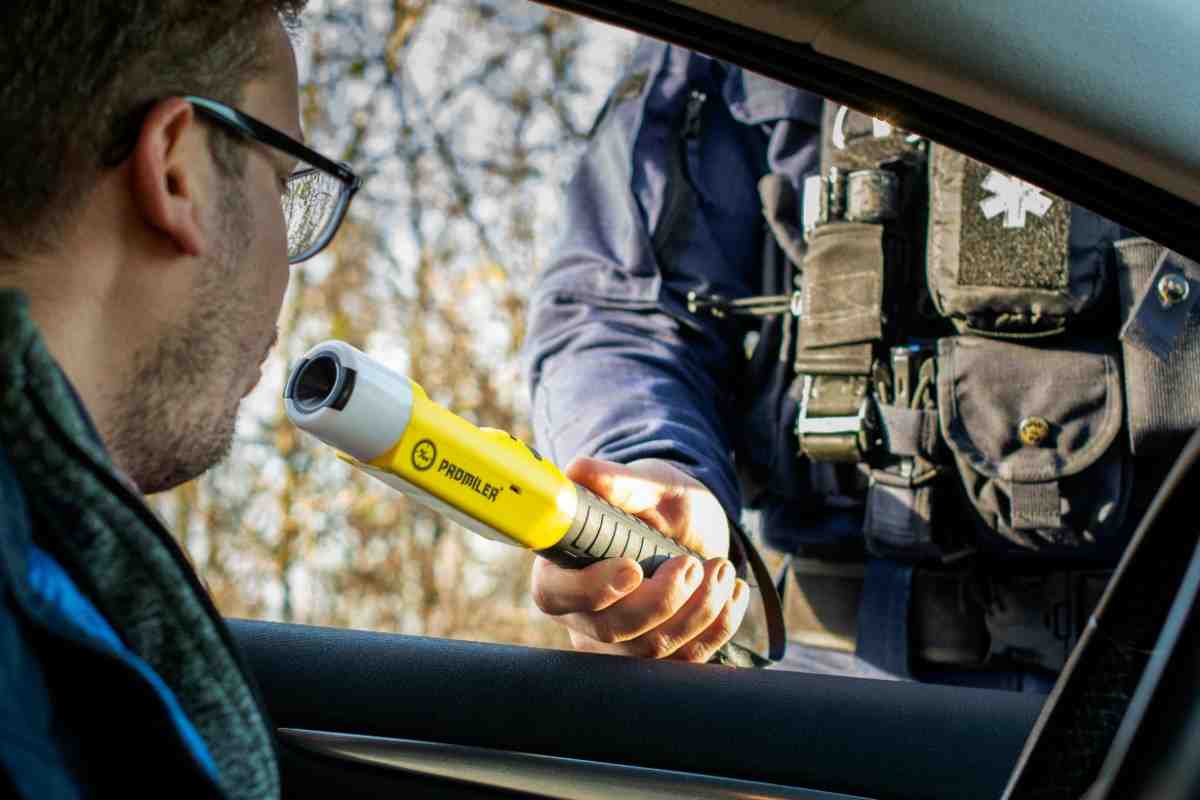By Graham Norris
The flash of red and blue lights in your rearview mirror triggers a universal sense of dread. In an instant, a routine drive home can escalate into a high-stakes encounter with the law. As the officer approaches, your mind races with one pressing question.
The direct answer is yes, you can refuse. However, that simple “yes” is deceptively complex. Your decision in that moment carries immediate and severe consequences under Texas law. Knowing the difference between a simple refusal and a strategic one is critical to protecting your rights. A Fort Worth DWI lawyer can help you defend against refusal-related charges and license suspensions.
Arrested for DWI in Tarrant County?
You have 15 days to fight a license suspension. Talk to a former Tarrant County prosecutor now.
Available 24/7 • Former Prosecutor • 3,600+ cases handled
How to Politely and Firmly Refuse a Sobriety Test
Knowing your rights is one thing; articulating them calmly under pressure is another. Your demeanor and wording are critical.
- For Field Sobriety Tests: When asked to perform the walk-and-turn or one-leg stand, state clearly and calmly: “Officer, I respectfully decline to perform the field sobriety tests.”
- For a Preliminary Breath Test: The handheld device at the roadside is voluntary. You can use the same phrase: “I respectfully decline to take the breath test.”
- For the Official Chemical Test: After arrest, state: “I will not consent to any testing without speaking to my attorney first.” This formally invokes your right to counsel.
The Immediate Consequences of Refusing a Sobriety Test in Texas
While you have the legal right to refuse a test, Texas operates under an “Implied Consent” law. Refusing this test after an arrest is a violation of this law and triggers automatic penalties. For comprehensive information about DWI laws, see what the Texas Penal Code says about DWI.
Automatic Driver’s License Suspension: For a first-time refusal, the suspension period is 180 days. With a prior record, the suspension can extend to two years. According to the Texas Transportation Code Section 724.035, these suspension periods are mandatory for test refusal.
A Separate Legal Battle: This suspension is an administrative penalty. You have only 15 days from the date of your arrest to request a hearing to fight this suspension. Learn more about what happens at an ALR hearing in Texas to prepare for this critical process.
Evidence Used Against You: Prosecutors are allowed to tell a jury that you refused the test, framing it as a sign of “consciousness of guilt.”
Know Your Rights: Field Sobriety Tests vs. Chemical Tests
The legal ramifications of your refusal depend entirely on which stage of the investigation you are in.
Refusing Standardized Field Sobriety Tests (SFSTs): These roadside tests are voluntary exercises. There is no direct legal penalty for politely declining to perform them. By refusing, you deny the prosecution a key piece of their evidence.
Refusing a Post-Arrest Chemical Test: This is governed by the Implied Consent law. Refusing this test triggers the automatic license suspension. For a blood test, officers can often secure a search warrant, compelling a blood draw.
Questions about your license or court date?
Get specific advice for your situation before you speak to anyone else.
Text the FirmThe Strategic Dilemma: Should You Refuse?
There is no perfect, risk-free choice. You are caught between providing potential evidence against yourself and facing certain administrative penalties for refusal.
If you take the test and the result is over the legal limit, the state has powerful evidence to use against you in court. This can make defending your case significantly more challenging. However, refusing the test ensures the prosecution will not have a scientific BAC reading. This can be a critical strategic move as outlined in how to beat a DWI in Texas.
What to Do If You Are Pulled Over for a DWI in Fort Worth
Knowing your rights is one thing; knowing how to exercise them calmly under pressure is another.
- Stay Calm and Be Polite: Provide your driver’s license and proof of insurance when asked.
- Politely Decline Field Sobriety Tests: You can firmly and respectfully state, “I decline to perform the field sobriety tests.”
- Invoke Your Right to Counsel: If you are arrested, clearly state that you wish to speak with an attorney before making a decision about the breathalyzer test.
- Contact a DWI Attorney Immediately: The 15-day deadline to save your license is fast and inflexible. An experienced attorney can guide you and begin building your criminal defense.
Don’t miss the 15-day ALR deadline
Protect your license and your record. Talk to Graham Norris today.
Call (817) 859-8985 Free ConsultationSecure Your Advocate and Protect Your Future
The legal crossroads you face after a DWI stop is complex. But you do not have to manage it alone. At Norris Legal Group, we provide more than just legal representation; we provide a dedicated partnership founded on the principles of Dignity, Trust, and Fight.
Don’t let a single decision dictate your future. Our team has the experience to be your steadfast advocate. With a proven track record, we have the determination to fight for the best possible result. Take control now.
Contact us today for a confidential consultation to discuss your case and let us become your trusted partner.

Graham Norris
Principal Attorney & Founder, Norris Legal Group PLLC
Graham Norris is an award-winning criminal defense attorney and former Tarrant County prosecutor with over a decade of courtroom experience. He has earned countless dismissals and not guilty verdicts on charges ranging from misdemeanor assault to felony murder. Graham has been recognized as a National Trial Lawyers Top 40 Under 40 attorney, named a Texas Monthly Super Lawyers Rising Star, and selected as a Top Attorney by Fort Worth Magazine.
Former Assistant District Attorney • Texas A&M School of Law Graduate • Member, National Order of Barristers
Need Legal Help? Call (817) 859-8985
Read the Comments +